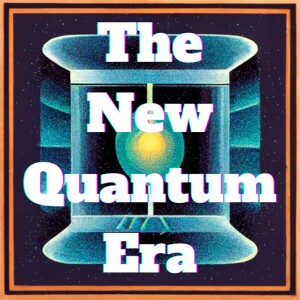
Quantum Advantage Theory and Practice with Di Fang
 2024-05-14
2024-05-14
In this episode of The New Quantum Era, host Sebastian Hassinger comes to you again from Rensselaer Polytechnic Institute, during their launch event in April 2024 for the deployment of an IBM System One quantum computer on their campus. RPI invited me to lead a panel discussion with members of their faculty and IT team, and provided a podcast studio for my use for the remainder of the week, where he recorded a series of interviews. In this episode Sebastian interviews Di Fang, an assistant professor of mathematics at Duke University and member of the Duke Quantum Center. They discuss Dr. Fang's research on the theoretical aspects of quantum computing and quantum simulation, the potential for quantum computers to demonstrate quantum advantage over classical computers, and the need to balance theory with practical applications. Key topics and takeaways from the conversation include:
- Dr. Fang's background as a mathematician and how taking a quantum computing class taught by Umesh Vazirani at UC Berkeley sparked her interest in the field of quantum information science
- The potential for quantum computers to directly simulate quantum systems like molecules, going beyond the approximations required by classical computation
- The importance of both proving theoretical bounds on quantum algorithms and working towards practical resource estimation and hardware implementation to demonstrate real quantum advantage
- The stages of development needed to go from purely theoretical quantum advantage to solving useful real-world problems, and the role of Google's quantum XPRIZE competition in motivating practical applications
- The long-term potential for quantum computing to have a disruptive impact like AI, but the risk of a "quantum winter" if practical results don't materialize, and the need for continued fundamental research by academics alongside industry efforts
More Episodes
 2024-07-18
2024-07-18
Create your
podcast in
minutes
- Full-featured podcast site
- Unlimited storage and bandwidth
- Comprehensive podcast stats
- Distribute to Apple Podcasts, Spotify, and more
- Make money with your podcast
It is Free
- Privacy Policy
- Cookie Policy
- Terms of Use
- Consent Preferences
- Copyright © 2015-2024 Podbean.com




